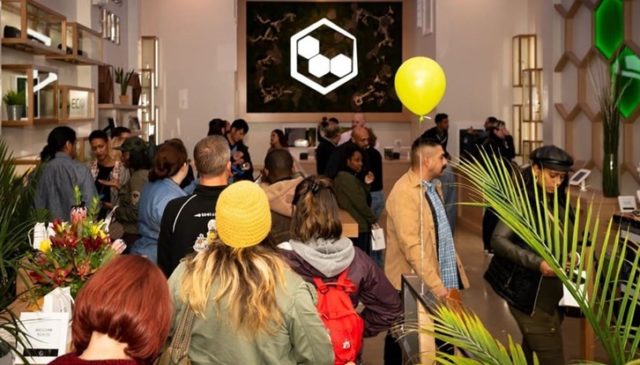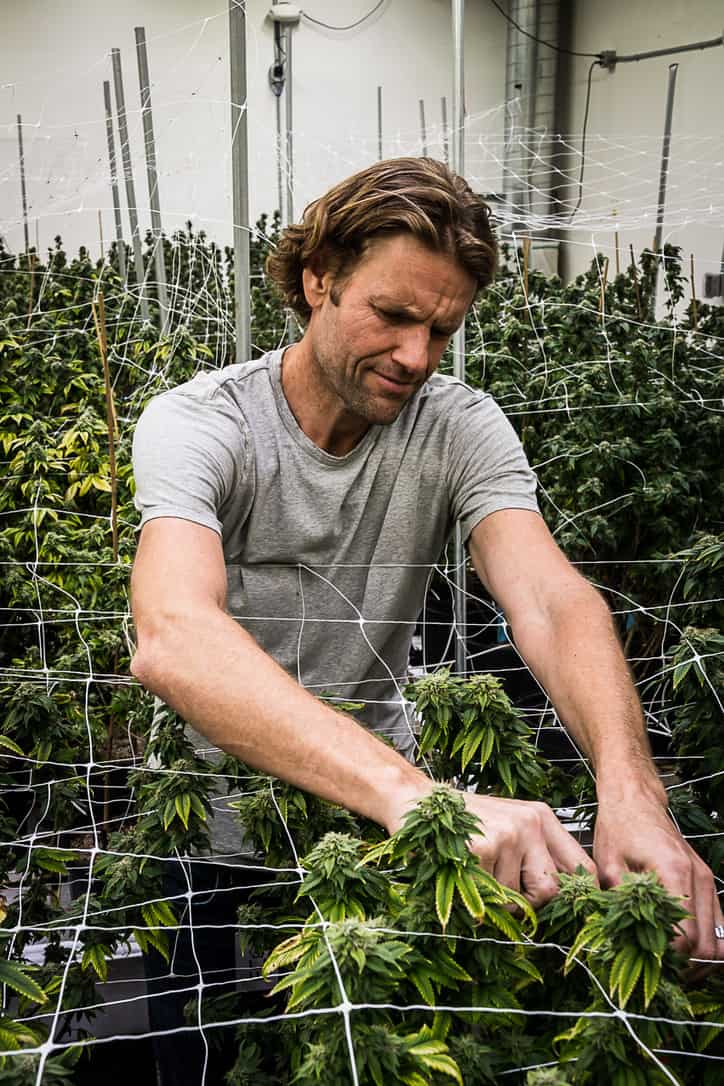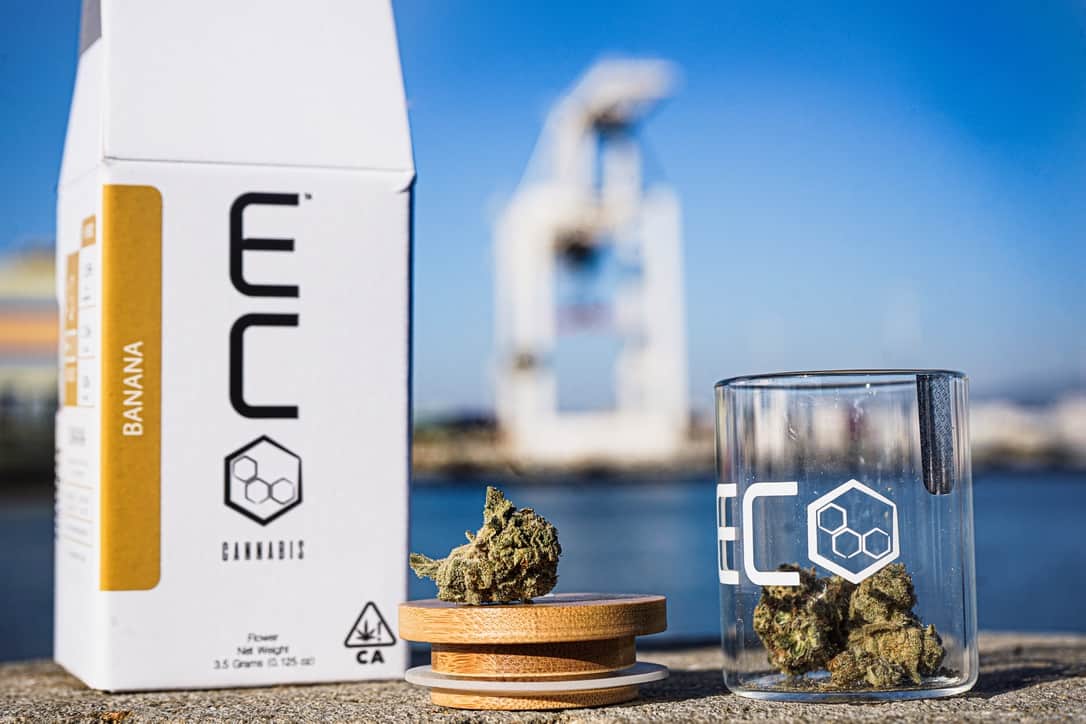
ECO Cannabis is operating not only for itself, but for people living in Oakland, Calif., who have been impacted by cannabis prohibition.
The vertically integrated company runs an incubation program for social equity dispensary and delivery businesses in East Oakland and purchases 50% of its product from social equity companies. Out of eight companies that ECO has been incubating, six of them have graduated. ECO also promotes diverse hiring and hires people who have been affected by the war on drugs.
Launched in January 2019, ECO has cultivation, manufacturing and retail operations. The company cultivates cannabis crops at a facility dubbed Mossrock and manufactures at another it calls Rubberrock. The two facilities, both in East Oakland, total 90,000 square feet. Its storefront is located at Telegraph Avenue in Oakland.
Employment at ECO
ECO’s employment is diverse both in terms of who works there and what they do. For instance, the company hires and promotes people who were previously incarcerated, which helps those individuals reintegrate into society, ECO CEO Kevin Ahaesy said in an email.

© Mike Rosati
Adhering to an organizational structure and culture that aids those affected by cannabis prohibition goes a long way, Ahaesy said. “For example, to develop, manage and facilitate initiatives around diversity, equity inclusion, and belonging (DEIB) both internally and externally in a way that improves recruitment, hiring, retention, organizational culture, promotion, and progression for … employees … can make a remarkably positive impact on those employees’ work and life experience.”
Roughly 35 of ECO’s employees work in cultivation and manufacturing, and about 15 work in retail, Ahaesy said. When looking for employees, he said, ECO partners with “job programs that cater to those who have been formerly incarcerated and/or affected by the war on drugs. In all of our job postings we also strongly encourage those individuals, Black, Brown, indigenous, people of color, women, and LGBTQIA folks to apply.”
Employees work to produce and sell popular strains such as Airheads, Space Nugs (Airheads flower covered in kief of the same strain) and Town Gas, said ECO Executive Assistant Anna Walia.
As Walia pointed out, the city of Oakland received more than $6.5 million in grant funding from California’s Bureau of Cannabis Control and Governor’s Office of Business and Economic Development (GO-Biz) for its cannabis equity program.
“That funding covers the cost of licensing fees that equity applicants do not have to pay in the city of Oakland,” she said.
RELATED: Need to Know: State Dollars Help Sacramento Build Equity Program
Half of Oakland’s cannabis businesses must be issued to equity applicants, according to the city’s municipal code. In addition to meeting an Oakland residency requirement, these applicants must meet certain income criteria and have either lived in at least one of 21 designated Oakland Police Department beats for 10 of the past 20 years or been “convicted of a cannabis crime committed in Oakland” since Nov. 5, 1996.
ECO sponsors these cannabis companies and also “maintains that 50% of its employees are formerly incarcerated and given the opportunity to thrive in the industry,” Walia said.
The company hires “exceptional talent with a reputation for excelling in their field,” said Amber Buchanan, chief operating officer. “We then support this talent by ensuring they have all the tools for success, including custom built facilities with full sensor-based monitoring of environmentals for precision agriculture, state-of-the-art LED lighting, automated fertigation systems, and advanced closed loop extraction equipment. The safety of our consumers and employees is our top priority and our facilities are sanitized from top to bottom daily with hospital grade protocol.”

© Cornelio Greer
Incubating Success
Working with ECO, incubated companies have found increased success. Olando Graves, owner of My Natural Solutions, a cannabis distribution and delivery company, has been involved in Oakland’s equity program for the past 10 months. Graves was quoted in a blog post on ECO’s website, saying, “The program assisted in my ability to obtain a cannabis license and start a business.”
Furthermore, Graves said in the blog that Ahaesy “showed true sincerity in assisting and working with” him and other social equity applicants, unlike “sharks” who had approached him.
In addition, ECO has sold wholesale product to My Natural Solutions, Buchanan said.
The grant funding from BCC and GO-Biz has been a boon for the incubator program, allowing ECO “to continue to fulfill its mission in supporting marginalized and oppressed people who deserve a chance to grow in the industry with us,” Ahaesy said.
Ahaesy added that “industry, policymakers and other stakeholders” can all play a role in breaking down barriers to entry and success for Black, Brown, indigenous and people of color (BBIPOC). In addition, he said, “The industry can raise its standards in practicing diverse hiring strategies. Representation in [media and social media] also matters to folks, especially to marginalized and oppressed groups.”
“[Providing] more training programs that are cannabis management-specific for those who have had no formal education and/or training would be a valuable resource for BBIPOC in the cannabis industry,” Ahaesy said. “Making cannabis legislation more accessible and understandable for those same individuals such that they feel empowered in their cannabis careers would be another step in the right direction.”
Buchanan highlighted some developments that are on the horizon at ECO. “We are currently expanding the number of grow rooms on our main campus [Mossrock], launching a new line of manufactured products under the brand ‘Oak Town Labs,’ re-inventing our ‘Dankfoot’ brand to focus on infused products, and developing a line of health and beauty products which will be known as ‘Higher Self,’” she said.
The company also plans to expand its retail presence in 2021, offering product that Ahaesy said is “Oakland-grown, certified fresh, and less than one month old when it hits our shelves.”
